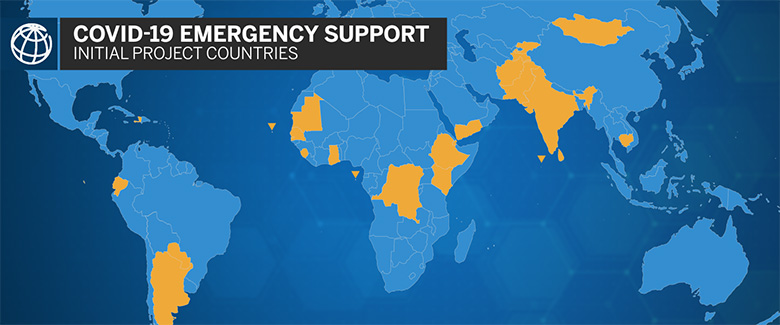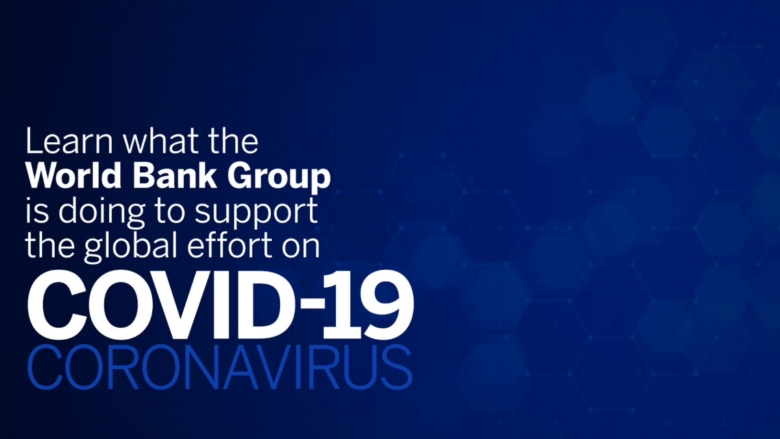Bank teams are also working with clients to rapidly redeploy a further $1.7 billion from existing projects to urgent pandemic response and recovery. This includes restructuring and use of projects’ emergency components as well as contingent financing instruments designed for catastrophes.
The focus of these first efforts is to help health systems tackle the immediate challenges of COVID-19. For example, in countries ranging from Afghanistan and Haiti to India, Mongolia, and Tajikistan, the financing will help bring more medical staff onboard and ensure that they are well trained and equipped to deliver emergency care. In countries like Ecuador and the Kyrgyz Republic, it will help ensure that public outreach that gets strong prevention and protection messages to citizens in the short and medium term. And in Djibouti, Ethiopia, and Yemen, among other countries, the increase in resources to fight the pandemic will also support long-term efforts that strengthen and build the capacity of the national health system.
The Democratic Republic of Congo illustrates the range of help that the Bank’s projects will provide, from early detection of the virus to contact tracing, a cordon sanitaire to limit the spread from the capital, and large-scale public information campaigns. The financing will also equip and rehabilitate key primary care facilities so that they can operate at the standards needed to combat the pandemic.
In Pakistan, the Bank’s support will be crucial to making remote learning available for 50 million children whose schools have had to close. The emergency financing here will also enable basic food to reach 40,000 people whose movement will be restricted for up to 6 months, and it will train health workers to watch for and help prevent gender-based violence in households under quarantine.





